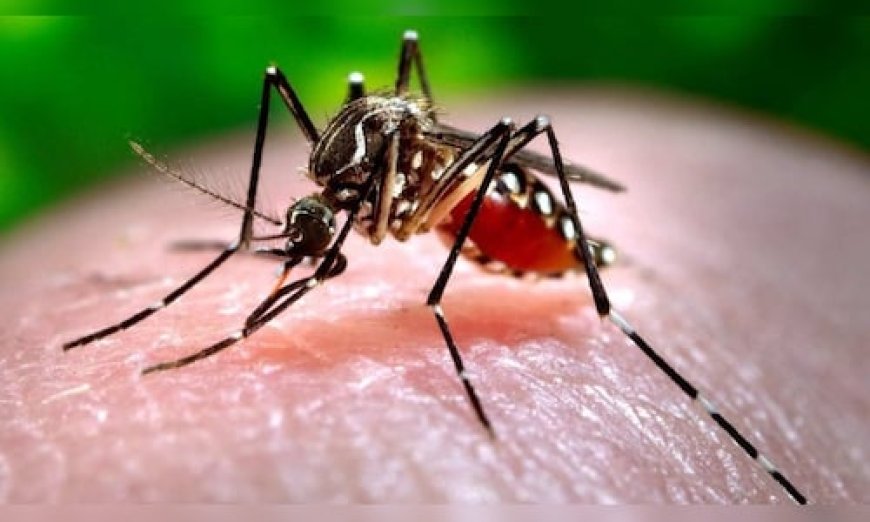India's First Dengue Vaccine Nearing Completion of Phase 3 Trial Enrollment
India's first indigenous dengue vaccine is close to completing participant enrollment for Phase 3 clinical trials by October 2025. The vaccine shows promise with a single-dose design, aiming to simplify mass immunization efforts in dengue-prone areas.

In a significant development in India’s efforts against vector-borne diseases, the Indian Council of Medical Research (ICMR) and Panacea Biotec are likely to complete participant enrollment for Phase 3 clinical trials of the country’s first indigenous dengue vaccine by October 2025. Post which, sources say that trial subjects will be under 'critical two-year follow-up, which will continue till the end of 2027. Only after that can Panacea Biotec and ICMR move forward with a formal application for market authorization.' Official sources told CNBC-TV18 that 'over 70% of the targeted 10,335 participants have already been enrolled across 20 centres nationwide, marking a major step forward in the vaccine’s development roadmap and the entire enrollment process is understood to be completed by October.'
This Phase 3 trial—launched on August 14, 2024—is a multi-centre, double-blind, randomised, placebo-controlled study aimed at assessing the vaccine’s efficacy, safety, and long-term immunogenicity. Once enrollment is completed, each participant will be monitored for a two-year follow-up period, after which the data will be submitted to the Central Drugs Standard Control Organization (CDSCO) for regulatory review, sources added.
'The enrollment process is progressing smoothly, and no safety concerns have been reported so far,' said official sources involved with the trial. 'The trial is being conducted across reputed medical institutions located in cities such as Chennai, Pune, Hyderabad, Bengaluru, New Delhi, and Kolkata, among others,' official sources added.
According to the study protocol, the two-year observation window following vaccination will conclude by the last quarter of 2027. Only after a comprehensive analysis of the safety and efficacy outcomes will the data be submitted to CDSCO, official sources said. 'If the vaccine demonstrates acceptable efficacy and a clean safety profile, it could then be considered for regulatory approval and subsequent launch,' official sources said.
What makes this vaccine candidate especially promising is its single-dose design, which could make mass immunisation both logistically easier and more cost-effective, especially in dengue-prone areas. Phase 1 and Phase 2 trials of the vaccine were earlier conducted in India and had received regulatory clearance from CDSCO after showing a strong safety and immunogenicity profile.
'India’s first dengue vaccine candidate has shown encouraging results so far. Phase 1 and 2 trials confirmed that the vaccine is safe and induces a protective immune response. We’re hopeful that Phase 3 will bring us closer to a much-needed tool in dengue prevention,' said official sources.
India faces seasonal dengue outbreaks each year, with thousands of hospitalisations and significant public health strain. The World Health Organization (WHO) estimates that around 390 million dengue infections occur globally each year, and India contributes a large share of the burden. With no specific antiviral treatment for dengue, prevention via vaccines and vector control remains the best approach.
Internationally, a few dengue vaccines have been developed, including Sanofi's Dengvaxia and Takeda’s QDENGA. However, these have limitations in efficacy across different dengue serotypes, require multiple doses, and have age or prior-infection restrictions, limiting widespread use. India’s homegrown single-dose candidate could address some of these challenges if proven effective.
As per the current timeline, subject enrollment is expected to be fully completed by October 2025. 'The critical two-year follow-up will then continue till the end of 2027. Only after that can Panacea Biotec and ICMR move forward with a formal application for market authorization,' official sources said. If successful, this vaccine could be a game-changer—not just for India, but for global dengue control efforts, particularly in lower-income countries with high disease burden.
What's Your Reaction?
 Like
0
Like
0
 Dislike
0
Dislike
0
 Love
0
Love
0
 Funny
0
Funny
0
 Angry
0
Angry
0
 Sad
0
Sad
0
 Wow
0
Wow
0







































































































































































